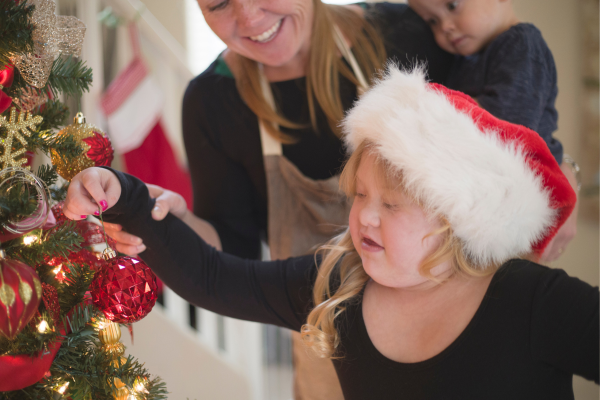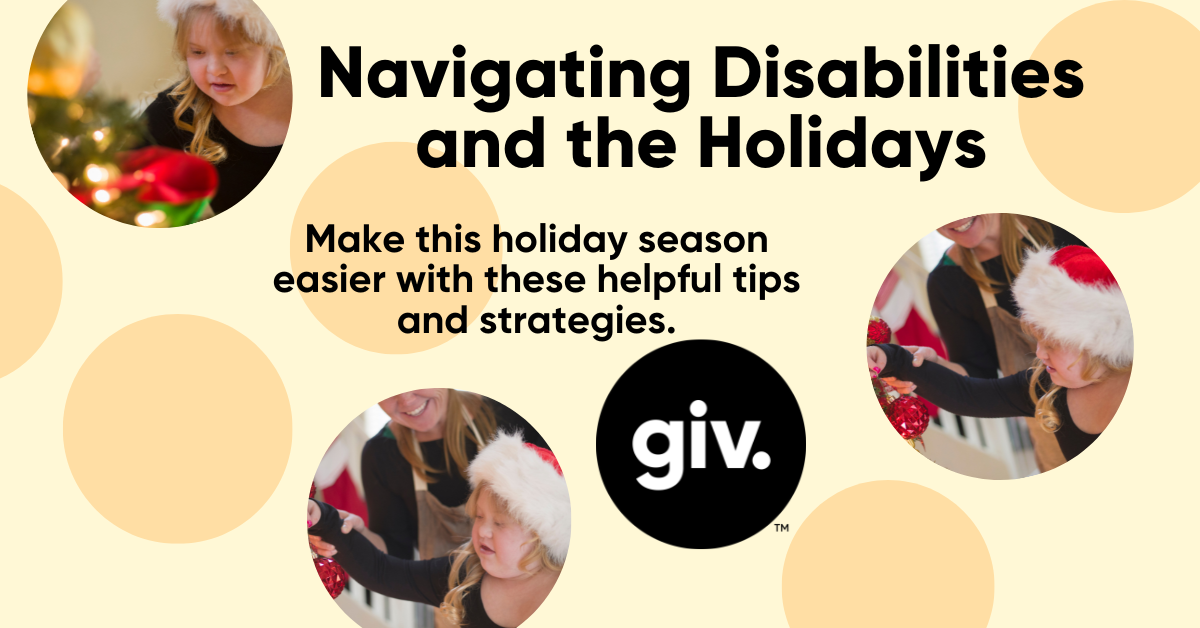The holiday season is a time of joy, celebration, and togetherness. However, for individuals and families dealing with disabilities, this festive time can bring unique challenges. Navigating disabilities and the holidays requires thoughtful consideration and planning to ensure that everyone can fully participate in the festivities. In this guide, we will explore the various aspects of disabilities and the holidays, offering insights and practical tips to make the season more inclusive and enjoyable for all.
Disabilities and the Holidays
The intersection of disabilities and the holidays can present both emotional and logistical challenges. Individuals with disabilities may face increased sensory stimuli, changes in routines, and a heightened level of social interactions during this time. For some, the festivities may be overwhelming, leading to anxiety and stress. Caregivers, in turn, navigate through a myriad of responsibilities, striving to create a positive and inclusive holiday experience.
During the holidays, it’s essential to recognize that each person’s experience is unique. Some individuals may have physical disabilities, requiring accessible accommodations for holiday events, while others may have sensory sensitivities that call for a quieter and more controlled environment. Understanding and respecting these differences is the first step in creating an inclusive holiday atmosphere.
In many cases, families may find it helpful to plan and communicate openly about the holiday celebrations. This includes discussing any specific needs or preferences individuals with disabilities may have. Creating a supportive and understanding environment fosters a sense of belonging and ensures that everyone can participate in the festivities with comfort and joy.

Inclusive Holiday Traditions for Disabilities
One way to navigate disabilities and the holidays is by establishing inclusive holiday traditions. These traditions can be adapted to accommodate various abilities, making them accessible and enjoyable for everyone. Consider incorporating activities that cater to different sensory needs, such as tactile experiences, visual stimuli, or soothing sounds.
Adapting holiday decorations is another thoughtful way to create an inclusive atmosphere. Ensure that decorations are visually appealing and considerate of any sensory sensitivities. For instance, using soft, non-flashing lights and choosing decorations with varied textures can enhance the experience for individuals with different abilities.
Moreover, when planning holiday meals, take into account dietary restrictions and preferences. Communicate with guests or family members about any specific dietary needs to ensure that everyone can partake in the shared meals without any concerns.
Gift-Giving with Disabilities
Choosing the right gifts can be a heartwarming way to show love and consideration during the holidays. When selecting gifts for individuals with disabilities, it’s important to think about their unique interests and needs. Consider adaptive devices, sensory-friendly items, or experiences that cater to their preferences.
For caregivers, thoughtful gifts that promote self-care and relaxation can be particularly meaningful. It’s essential to acknowledge the dedication and hard work of caregivers, offering them a moment of respite during the busy holiday season.
When wrapping gifts, consider using tactile and visually appealing wrapping paper. This not only adds an extra layer of thoughtfulness but also enhances the overall gift-opening experience for individuals with diverse sensory preferences.

Managing Stress During Disabilities and the Holidays
The holiday season can be stressful for everyone, but this stress can be amplified for individuals with disabilities and their caregivers. Managing stress is crucial for creating a positive and enjoyable holiday experience. Caregivers should prioritize self-care, ensuring that they have the support and resources needed to navigate the additional responsibilities that may arise during this time.
Planning and organization play key roles in stress management. Create a holiday schedule that includes breaks and moments for relaxation. This can help individuals with disabilities and their caregivers navigate through the festivities without feeling overwhelmed.
Additionally, reaching out for support is essential. Whether it’s from friends, family, or support groups, sharing experiences and seeking advice can provide valuable insights and emotional relief. Remember, managing stress is not only beneficial for caregivers but contributes to a more harmonious and joyful holiday season for everyone involved.
Creating Inclusive Celebrations: Disabilities and the Holidays
As families come together to celebrate, creating an inclusive environment becomes paramount. Ensure that holiday gatherings are accessible to all by choosing venues with accommodations and by considering transportation needs for individuals with mobility challenges.
Encourage open communication among guests, fostering an understanding of each other’s needs and preferences. This can lead to a more supportive and empathetic atmosphere during holiday events.
When planning activities, offer a variety of options that cater to different abilities and interests. This could include games that are adaptable, music that accommodates sensory preferences, and opportunities for both socializing and quiet relaxation.

In conclusion, navigating disabilities and the holidays requires a thoughtful and inclusive approach. By recognizing the unique needs of individuals with disabilities and their caregivers, families can create a holiday season that is not only festive but also welcoming to everyone. From inclusive traditions and considerate gift-giving to stress management and accessible celebrations, these efforts contribute to a more harmonious and joyous holiday experience for all.






